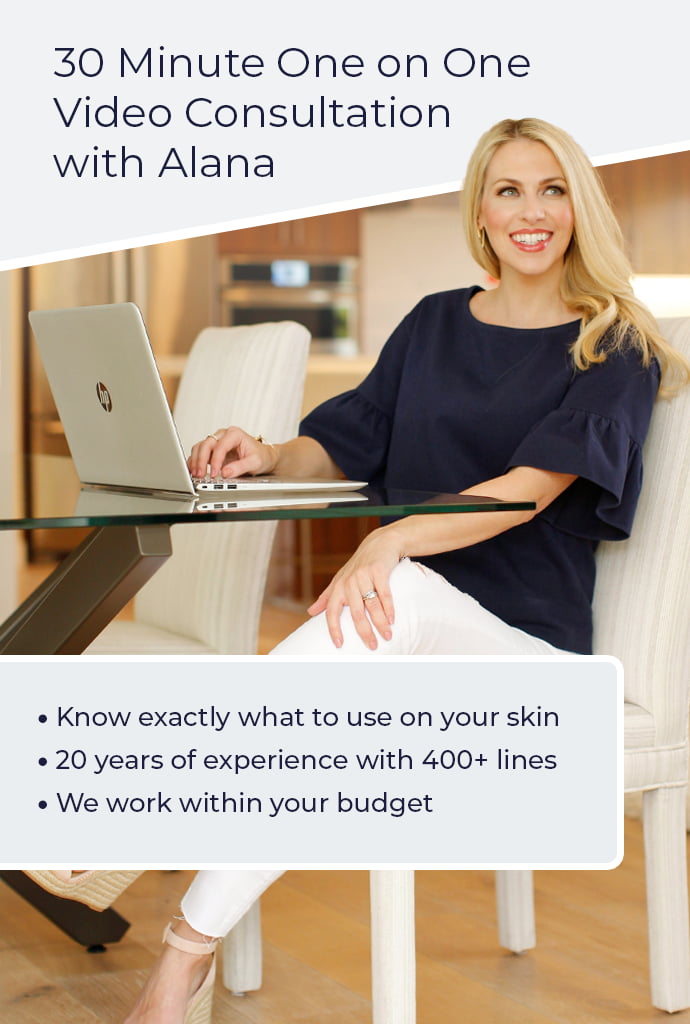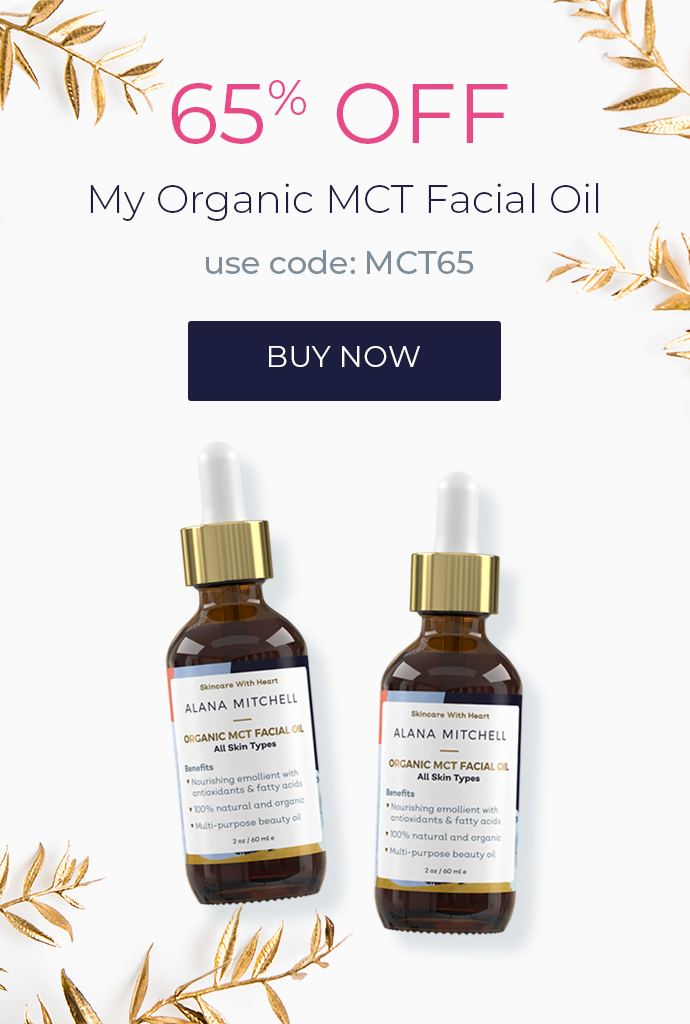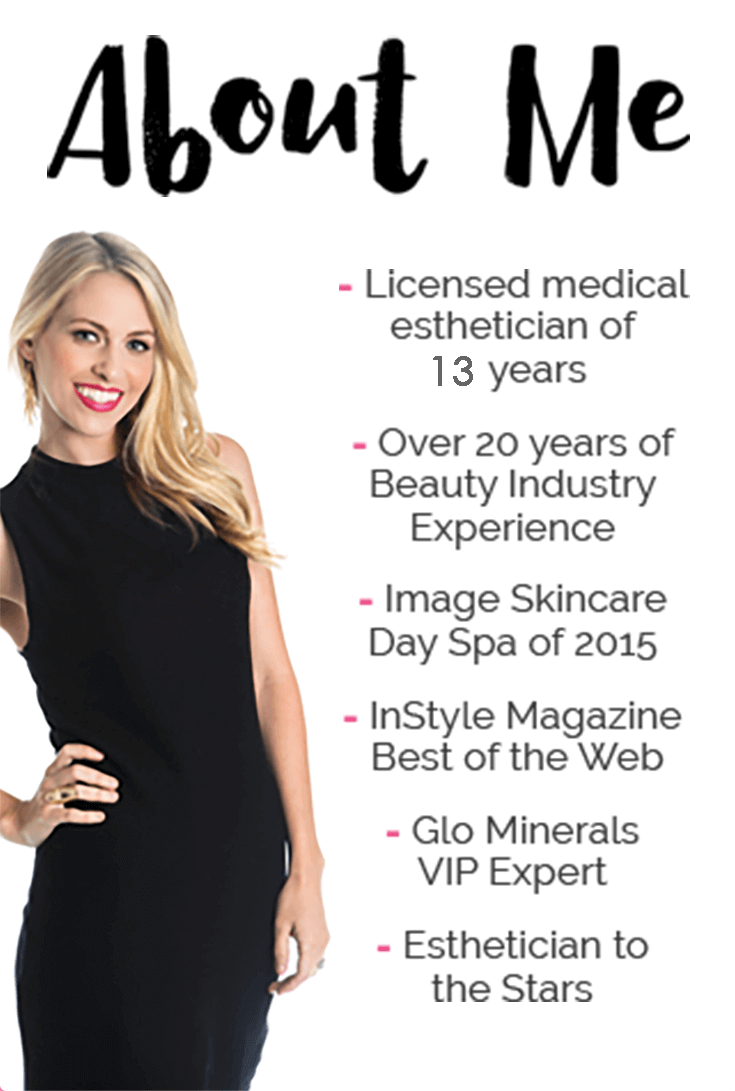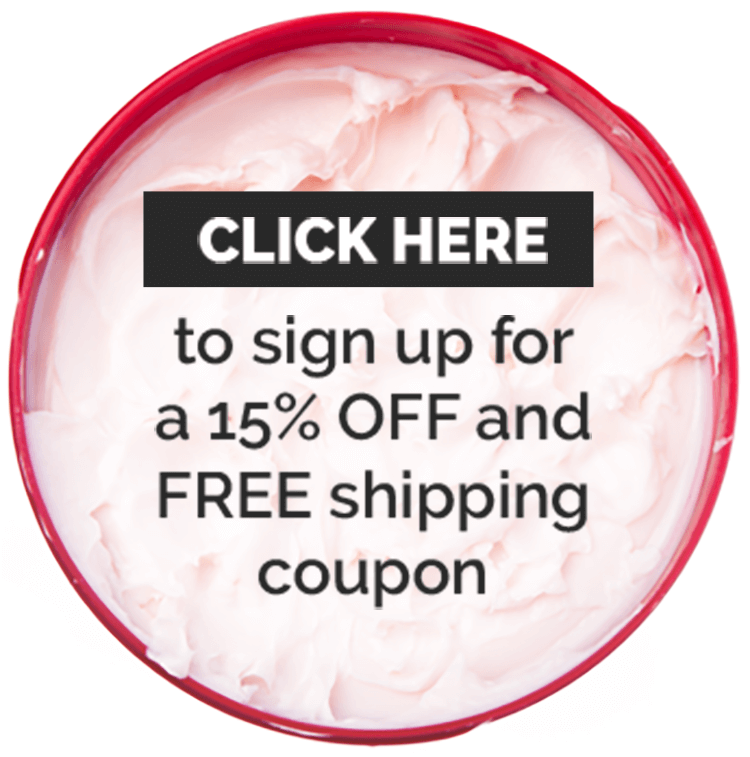What Should You Be Using In Your Skin Care Routine?
Take my quiz and get personalized recommendations from a
licensed esthetician!
Here's Exactly How Cortisol Affects Your Skin
If you clicked on this article, chances are you’re stressed — even if it’s only a little bit.
And you’re not alone.

It may be your work, it may be your family, or it may be something completely unique and personal to you.
But whatever it is, I totally understand!
Unfortunately, your skin doesn’t.
If you’ve read my blog before, you know that stress releases a hormone called cortisol, which wreaks havoc on your skin.
But why? Today, we’re getting into all the dirty details of why stress causes skin problems — plus, how to alleviate stress and save your skin!

What Is Cortisol?
Many of us have heard of cortisol, but many of us don’t know what it actually is.
Cortisol is a hormone that can be classified as a “steroid hormone” or a glucocorticoid.
Cortisol is produced in the adrenal glands (the ones right above your kidneys) and released into your bloodstream, which means it is transported throughout your body.
Nearly all of your body’s cells have receptors that can absorb cortisol, which is why cortisol can have such a major effect on us.
Some of the areas that cortisol can affect include your blood sugar levels, your metabolism, your water balance, your memory, your blood pressure, and more!
For most of us, cortisol production is at its highest when we wake up in the morning, so that its release is linked up with when we’re going to be the most active (if you have a wonky schedule, your body will likely sync your cortisol production to whenever you do most of your activity).
Your body also releases extra cortisol when you’re stressed to help your body respond, which is where we may run into some problems.
Keep reading to discover how this stress-induced cortisol production affects you and your skin!
How Does Cortisol Affect Your Body (and Your Skin)?
Now that we all know what exactly cortisol is and where it comes from, it’s time to dive into how it affects our bodies and our skin!
Cortisol is good for you when it’s regulated.
After all, that’s why your body produces it!
Unfortunately, sometimes the body mistakenly produces too much cortisol.
This can be due to stress, certain medications, or other hormonal issues.
If your body produces too much cortisol consistently, you can develop a condition that’s known as Cushing’s Syndrome.
While Cushing’s Syndrome is very rare, high cortisol levels can lead you to experience many of the same symptoms.

However, don’t get confused — cortisol is not bad!
We just need it in moderation.
In fact, too little cortisol can lead to a disorder known as Addison’s Disease.
However, too little cortisol is rare and is generally only seen in those with hormonal disorders.
Overproduction of cortisol is more common.
When it comes to your skin, overproduction of cortisol for a prolonged period of time can similarly cause pesky problems, even when you don’t actually have Cushing’s Syndrome.
If we’re constantly stressed, we’re more likely to face these issues.
The main negative effect of too much cortisol on our skin is acne.
The reason this happens is that high cortisol levels cause our skin’s sebaceous glands to produce more sebum (otherwise known as oil).
As many of us know by now, too much oil production in our skin can clog our pores and lead to breakouts.
Other ways cortisol shows up on our skin is through signs of aging.
Increased cortisol production can accelerate the aging process, leading to the appearance of lines, wrinkles, and age spots.
Lastly, if you have skin conditions such as rosacea or psoriasis, you might experience flare-ups when you have high cortisol production (although you’ve probably already figured out that stress causes flare-ups).

How to Combat the Effects of Cortisol
Like many of our skincare woes, the effects of cortisol are best attacked from the root cause.
Instead of putting a topical solution on breakouts, we should work to attack what’s causing the breakouts.
And if you suspect your breakouts are caused by excess cortisol production, it means that to remedy your acne, you need to reduce your stress level.
Of course, this is much, much easier said than done — trust me, I know firsthand!
That’s what I’m leaving you with tons of suggestions for how to try de-stressing.
Some may work for you, some may not, and some may have you scratching your head thinking, “Will this really work?”
But before we get into de-stressing, here are some other ways that you can naturally lower your cortisol levels:

Get More Sleep
Time, length, and quality of your sleep all affect your cortisol levels.
Even if you don’t think it’s possible to sleep for more hours, it might be possible to sleep better!
One easy trick is to eliminate screen time before bed (and definitely don’t use any screens while the lights are out — it strains your eyes).
I like to put my phone on airplane mode to ensure no late night vibrations will disturb me from my slumber.
Exercising during the day has also been proven to help you sleep better.
As a bonus, exercise will also help to improve your mood and reduce stress on its own by increasing your endorphins.
Eat Less Sugar (And Drink More Water)
We know that too much sugar is bad and too much water is good, but they both can directly affect your cortisol levels.
Dehydration and high sugar intake can both lead to increased cortisol levels.
And just like with stress, if you consistently eat sugary treats or don’t drink enough water, your cortisol levels will remain elevated as their “new normal.”
Double check your go-to snacks to ensure they’re not packing a sugary punch.
Unfortunately, lots of on-the-go snacks such as protein bars are loaded with sugar. I like to pop a banana and a bag of almonds in my bag instead!
As a bonus, increased fruit intake has been linked to lower cortisol levels!
Try Supplementing With Fish Oil or Ashwagandha
Both fish oil and ashwagandha have been proven to lower cortisol levels, so you may want to consider adding one to your daily routine.
Probiotics have also been shown to decrease cortisol levels, so if you don’t normally get probiotics in your diet (through yogurt or even Kefir), you may want to try it in supplement form.
Of course, you should always discuss any supplements with your doctor beforehand, but all three of these have multiple benefits other than just lowering your cortisol levels, which I consider a win!
Ways to De-Stress
Like I mentioned previously, there are tons of ways to de-stress — this list is not exhaustive.
Some may work wonders for you, some may not!
These are just some things that have worked for me, my friends and loved ones, and other women I’ve met through the online beauty community!
- Talking to a Loved One
It sounds so simple, but when we’re stressed, we’re generally busy and we might even tend to close ourselves off to others.
It can be revolutionary how much our mood can change from having a good conversation (or even a good laugh) with a friend, spouse, family member, or even a licensed therapist.
You don’t necessarily have to vent about what’s stressing you out (sometimes I’ve found this makes me more stressed), but just talking about whatever comes to mind can help cleanse your palette — and by palette, I mean your overworked brain!

- Meditation (and/or Mindfulness)
Chances are someone has suggested meditation when you’ve mentioned that you’re stressed.
You may have rolled your eyes and thought, “As if I have time to meditate when I have 100 other things on my plate.”
I totally get that first impression, but I urge you to try meditation!
You don’t have to go to a class or spend any money.
Many meditation apps, such as Headspace, offer a free trial and have 10-minute audio recordings that you can do anywhere — from your bedroom to a busy subway car.
Something even simpler that works for me when I’m super stressed or anxious is just closing my eyes and taking three big deep breaths.
It sounds so silly, but sometimes we get so overwhelmed that we forgot to take a second and breathe.
Taking some deep breaths can also cool your central nervous system, which will hopefully signal to your body that you don’t need that extra cortisol after all!
- Start a Gratitude Journal
Another thing I swear by? Gratitude journals.
Sometimes we’re so busy stressing or complaining about the day’s stressors that we forget to be thankful for all the amazing things (and people) that we have in our lives.
The idea behind a gratitude journal is to help you realize how many blessings you do have in your life and to encourage a positive mentality rather than leaving your brain to dwell on the negative.
You can use a plain notebook or an app like Gratitude. I also love the planners from Transcending Waves that are part-planner, part-gratitude journal.
If you try to start journaling and you get stuck on what you’re thankful for — keep it simple.
It doesn’t have to be landing a big job interview or receiving a lovely gift — it can be something teeny-tiny that makes you happy. For example, “I’m grateful that the color pink exists,” or “I’m grateful for cranberry scones.”

- Self-care
Chances are you’ve heard all about self-care by now, but have you figured out what it means to you?
Lots of the self-care we see on social media involves pampering yourself with a pedicure, a face mask, or a vacation, but that’s only one iteration of self-care, and might not be what works for you.
Self-care doesn’t have to involve spending money, it can simply mean waking up earlier to have “me time” before your kids have to get ready for school.
It can also mean making time to work more physical activity in your life — which in turn will also help to combat stress in its own way due to endorphins!
It can also mean saying no to the things you don’t want to deal with, which brings me to my next (and last) suggestion for de-stressing yourself.
- Value Your Time (and Learn to Say No!)
Many of us are stressed because we have too much on our plate, and most of the time, not all of the things on our plate are things we enjoy.
Of course, some things are necessities of our lifestyle, but take a moment to reconsider if everything you’re taking on is something you need (or want) to be doing.
Then, consider if there’s someone else who could take on this task.
For example, let’s say your weekly grocery trips stress you out and get in the way of the Pilates classes you’d like to try.
Some options could be ordering your groceries through Amazon, Peapod, or another grocery delivery service.
You could also try to stock up on some groceries to visit the store less frequently. If you live with your partner, you could ask if they’d be willing to alternate grocery duties each week.
Generally getting groceries delivered is more expensive, but time really is money (especially when you feel like you have no time).
There are certain points in your life where it’s important to decide what’s worth spending a little extra on.
Once you clear your schedule of the things you really don’t actually like doing, you’ll have more time to do the things you do enjoy!
Stress Busters
These are the products that I personally use when I feel the need for a little R&R!
The Cottage Greenhouse Rosemary Mint Ceramic Candle
Alana Mitchell Beauty Stone Roller - Rose Quartz

Bioelements Radiance Rescue Eye Mask
Final Thoughts
No matter what kind of lifestyle you live, stress is inevitable.
However, if we take a step back and look at what we can control, stress becomes much more manageable and life becomes more enjoyable!
And of course, as an added benefit, our skin thrives!
Less stress, fewer breakouts, and slower signs of aging? Sign me up!
What’s been your experience with stress and skin? Do you have any other ways you like to de-stress? I’d love to hear it in the comments below!
Top Brands
New Brands

Recent Posts

Are You Taking the Right Steps to Care for Your Skin?
Take the Quiz
Skincare Secrets!
10-step guide for healthy, beautiful skin after kids.
100% privacy. I will never spam you!

















